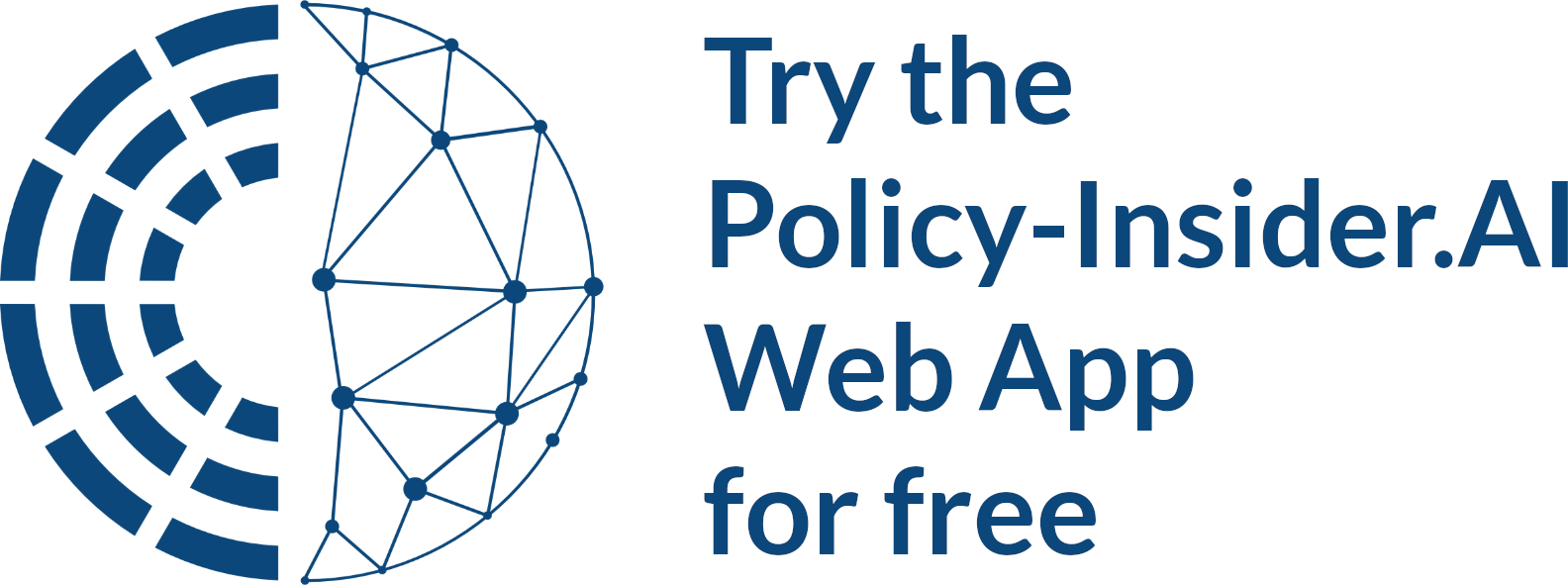As the world grows increasingly interconnected, the public affairs industry finds itself at the crossroads of change. One of the most transformative forces shaping this change is Artificial Intelligence (AI). From public policy monitoring, data analysis to stakeholder engagement, AI promises to redefine how public affairs professionals operate. In this article, we’ll explore the potential impact of AI on the public affairs industry.
While AI platforms like welcome.policy-insider.ai/ are making significant strides in the public affairs landscape, the notion that they will replace Public Affairs Consultants is misplaced. Instead, these advanced AI tools are set to enhance the capabilities of consultants, allowing them to shift their focus from routine tasks to true value creation for their clients. The human touch, intuition, relationship-building, and nuanced understanding of complex socio-political environments cannot be replicated by machines. AI will serve as a complementary force, empowering consultants to deliver more impactful, data-informed strategies and fostering deeper client relationships.
1. Data-Driven Decision Making
AI excels at analyzing vast amounts of data quickly and efficiently. For public affairs professionals, this means a more accurate understanding of public sentiment, stakeholder interests, and policy implications. With AI-driven insights, strategies can be fine-tuned to resonate more effectively with target audiences.
2. Predictive Analysis for Policy Changes
Predicting policy changes is a crucial aspect of public affairs. With AI’s predictive analysis capabilities, professionals will soon be able to anticipate policy shifts based on historical data and current trends. This proactive approach allows for better preparedness and more effective lobbying efforts.
3. Enhanced Stakeholder Engagement
AI-powered chatbots and virtual assistants can streamline stakeholder engagement, providing instant responses to queries and concerns. This not only improves efficiency but also ensures that stakeholders feel heard and valued. Here again, for your stakeholders to feel valued, delegating your communication with them to AI chatbots would be misplaced. Bots and other generative AI tools can however help you to better address your stakeholders and adequately phrase your messages.
4. Automating Routine Tasks
From monitoring policy updates to drafting reports, many tasks in public affairs are repetitive. AI can automate these routine tasks, freeing up professionals to focus on more strategic aspects of their work.
5. Personalized Communication
AI can analyze stakeholder preferences, behavior, and feedback to tailor communication strategies. Whether it’s crafting personalized messages or determining the best channels for outreach, AI ensures that communication is relevant and impactful.
6. Real-time Crisis Management
In times of crisis, timely response is crucial. AI can monitor online chatter, news sources, and social media to detect potential crises in real time. By alerting public affairs professionals at the earliest signs of trouble, AI empowers them to take swift action.
7. Skill Augmentation and Training
With AI-driven tools and platforms, public affairs professionals can augment their skills. Whether it’s mastering data visualization or understanding complex policy nuances, AI can provide tailored training and resources to elevate the capabilities of professionals.
While AI offers numerous advantages, it’s essential to use it ethically. AI models can sometimes reflect societal biases. Recognizing this, public affairs professionals can leverage AI to detect and mitigate biases, ensuring that their strategies are actually fair and inclusive.
The integration of AI into the public affairs industry is not just a possibility—it’s an inevitability. As AI continues to advance, its impact on public affairs will be profound, reshaping strategies, processes, and outcomes. Embracing AI today means preparing for a more efficient, insightful, and impactful tomorrow.

